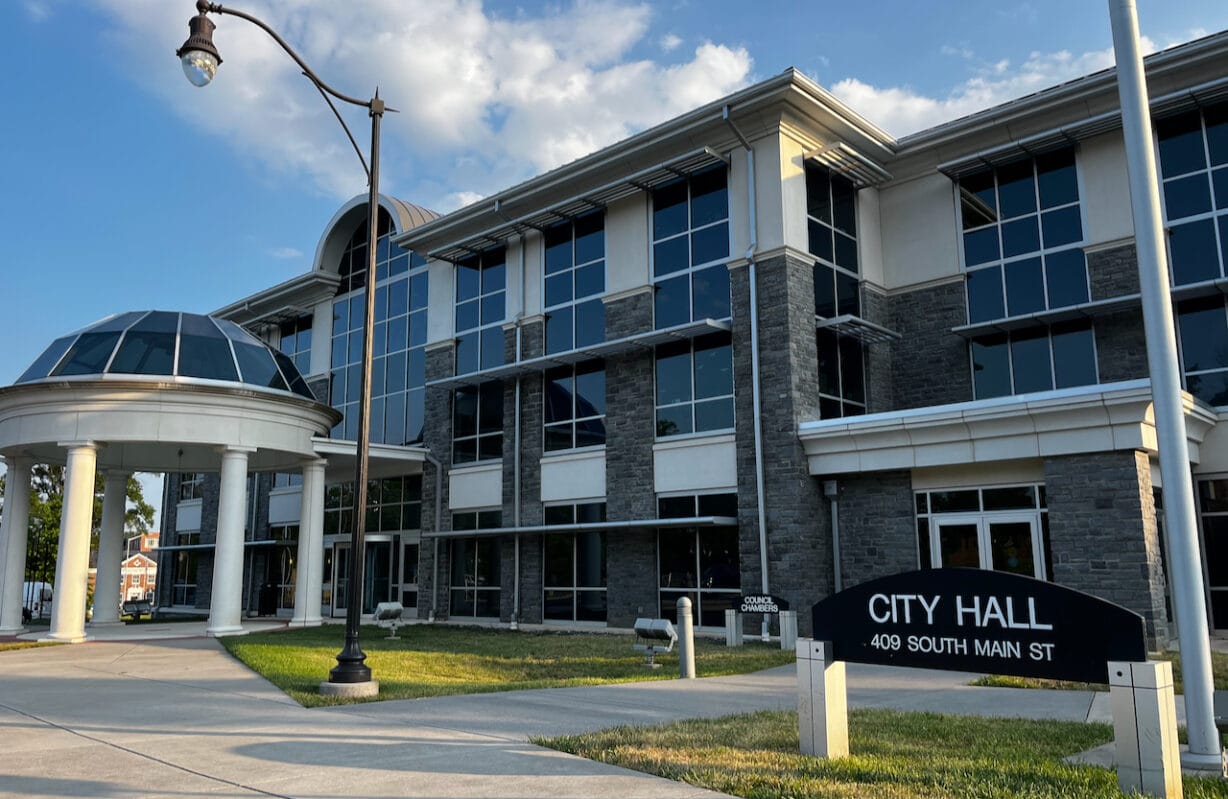
By K. Mauser, contributor
For the first time in his life, Public Utilities Director Mike Collins believes Harrisonburg may be entering a drought with conditions that are already requiring some large water users to voluntarily conserve water.
Collins told the city council Tuesday that this summer’s hot weather and slightly low precipitation levels in Harrisonburg and the surrounding Shenandoah Valley have contributed to conditions that are squeezing the area’s available groundwater. The council responded by passing a resolution declaring a drought in the Friendly City.
While Harrisonburg and its surrounding areas have experienced a normal level of precipitation lately and slightly low reservoir levels, levels of groundwater and water flow are particularly low, according to Collins’ presentation.
The City of Harrisonburg uses more than 200 million gallons of water a month, and Collins said he’s worried about the additional water usage when JMU and EMU students return to Harrisonburg in the coming weeks.
“We will certainly, for the first time in my lifetime, see the demand exceed our capability,” he said.
Harrisonburg uses about 55 million gallons of water a week, Collins said, with an additional 5-10 million gallons being used weekly when JMU and EMU are in session. Public Utilities can comfortably treat about 68 million gallons of water a week before having to endure the “physical, financial, and social consequences” of extending the amount of treated water available to Harrisonburg.
To aid in water conservation, City Manager Ande Banks said he, Collins and Deputy City Manager Amy Snider began reaching out to locations that use a lot of water, such as JMU and Harrisonburg City Public Schools to encourage “voluntary restrictions.” Many contacts have already agreed to water fields only between the hours of 8 p.m. and 10 a.m., as well as employing other water conservation efforts, Banks said.
“We’ve already practically accomplished, I think, some pretty significant voluntary restrictions,” Banks said.
But Collins still said there’s a 25% chance that Harrisonburg may exceed its water treatment capabilities with the return of new students, which would call for a “mandatory restriction” of water usage.
“We may have to decide who gets water and who doesn’t, if we were to ever flip and invert that supply and demand,” he said. “Not an enviable position or road to be in, but we’re just hoping that all the things come together.”
Collins named car washes, swimming pools, restaurants, athletic fields and lawns, alongside others, as some of the highest consumers of water across Harrisonburg.
As Collins put it, “When you have nine pieces of candy and 10 hands out, somebody doesn’t get the candy.”
The next six weeks, Collins said, will determine whether Harrisonburg’s water supply can sustain these conditions without requiring mandatory water restrictions.
Thanks for reading The Citizen, which won the Virginia Press Association’s 2022 News Sweepstakes award as the top online news site in Virginia. We’re independent. We’re local. We pay our contributors, and the money you give goes directly to the reporting. No overhead. No printing costs. Just facts, stories and context. We value your support.











